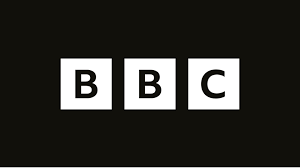The European Union’s decision to hike steel tariffs and sharply cut import quotas has provoked widespread concern in the U.K., as well as rumblings of discontent among carmakers on the continent.
Tag: UK
U.K. Chancellor Rachel Reeves gave little away Monday about where the axe could fall in the forthcoming budget, as she looks to fill a hole in Britain’s public finances.
The U.S. and U.K are expected to sign a flurry of major new deals during U.S. President Donald Trump’s state visit to Britain this week, seeking to kickstart a “golden age” of nuclear power.
U.K. economic growth flatlined in July, according to data published Friday, adding to Chancellor Rachel Reeves’ headache ahead of the Autumn Budget.
The U.K.’s economy unexpectedly shrank by 0.1% month-on-month in January, official figures showed on Friday.
The U.K.’s inflation rate rose sharply to 3% in January, coming in above analyst expectations of a 2.8% reading, according to data released by the Office for National Statistics (ONS) on Wednesday.
UK house prices surged in January, as buyers rushed to snap up properties ahead of the stamp duty increases being implemented from 1 April 2025 onwards.
The Bank of England cut interest rates on Thursday as it halved its growth outlook for this year and said a jump in inflation will prove temporary, while two officials unexpectedly voted for an outsized rate cut.
Mortgage rates last week moved higher for the fourth week in a row. That caused already very weak mortgage demand to drop even further. Total mortgage application volume fell 3.7% compared with the previous week, according to the Mortgage Bankers Association’s seasonally adjusted index. An additional adjustment was made for the New Year’s holiday.
The Bank of England said on Thursday it had allotted 46.180 billion pounds ($57.49 billion) at its first short-term repo of 2025, the second-highest amount on record and up from 38.075 billion pounds at a repo on Dec. 19.
U.K. inflation rose to 2.6% in November, the Office for National Statistics said Wednesday, marking the second straight monthly increase in the headline figure.
The UK economy shrank for the second month in a row in October as concerns about the Budget continued to weigh on confidence.
British businesses lost steam and pulled back on hiring last month, as industry reacted to the Labour government’s bumper tax-raising budget, new data showed Monday.
U.K. inflation picked up sharply to a higher-than-expected 2.3% in October, data from the British Office for National Statistics showed Wednesday, tempering expectations of a December interest rate cut from the Bank of England.
Gross domestic product fell by 0.1% in September, following growth of just 0.2% the previous month, according to the Office for National Statistics. Economists polled by Reuters had expected growth of 0.2% for September.
UK inflation fell more than expected to a three-year low of 1.7 per cent in September, prompting the pound to fall and traders to increase bets on further rate cuts from the Bank of England this year.
The U.K. economy returned to growth in August following two consecutive months of stagnation, providing a slight boost as the Labour government prepares to deliver its first budget later this month.
Sterling was down 1.33% to $1.3091 at 12:35 p.m. in London, its lowest intraday level since Sept. 12. The drop put sterling on course for its steepest daily decline against the greenback for more than 20 months, according to a CNBC calculation of LSEG data.
U.K. inflation held steady during the month of August, data from the Office for National Statistics showed Wednesday, and matched analyst expectations.
The UK economy unexpectedly stagnated for a second consecutive month in July, in a blow to the newly elected Labour government that has promised to boost the country’s growth performance.






